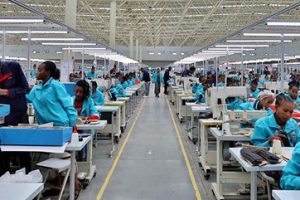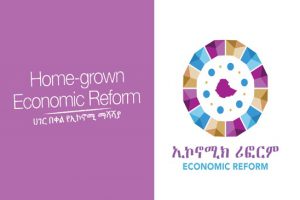Study indicates that, delay of projects accomplishment undergoing in the various parts of the country incurs additional finance. The statement was announced by the Infrastructure Transparent Initiative.
The institution deals with corruption committed by the public owned development organizations projects under the auspices of the Federal Ethics and anti-Corruption Commission.
The Chairman of the Initiative Iyassu Yimer said that the initiative with the support of the professional institutes made study on ten projects financed by the government.
As to him, the study focuses on their status, and implementation and what challenges they face.
The initiative is led by three stakeholders including the government and the civil society association representatives and contractors engaged on the projects, engineering and architect associations.
It is led by a board of directors and structurally, it is under the administration of the Federal Ethical and anti-Corruption Commission.
The study group up to now made study on 78 projects financed by the government in which their total cost rose to 60 billion Birr.
According to Eyassu, citizens have the right to know each government organization, how it conducts its day to day business in a transparent manner and how far accountability is practiced when misdeeds occur. In addition, the study group will announce its findings to the public.
Among the studied 10 projects including the Armawor Hanson research institute center, the federal Jury residential houses construction, Semera Afdera electric power, the Babile fik road projects lot 1, Mota Jara Gedo road project lot 1, Debre Markos- Debre Elias Denbecha road project, the Nekemte Airport, the Adey Abeba National Stadium, the Borena university laboratory center, mintanir-etehbila-metehara road projects can be cited.
The projects are delayed and took additional working time against the expected time to be accomplished and even though some of the projects seem to be completed soon, their accomplishment status is at the lowest level and the situation incurred them additional cost and time.
Therefore, redesigning the projects and beginning the construction again and in such a way minimizing the cost is taken as a way out.
Whenever projects are implemented by whatever means, information beginning from bid up to the accomplishment must be kept in the proper manner. However, the study indicated that there is a huge gap in the projects which are undergoing in this regard and it was unable to know their status.
The Adey Abeba national stadium which is under construction in Addis Ababa is the case in point.
The construction of the national stadium was set to be constructed in two phases and currently the first phase is completed and now it is in its second phase.
As to Zelalem Tesfaye who conducted the study, though currently the laying of the ceiling of the stadium is undergoing, the project manager was unable to explain with regard to the situation in a proper manner to the study team.
Nevertheless, in previous time the Sport Commission told the journalists that the cause of the delay of the construction was due to the outbreak of COVID-19 and the shortage of hard currency for the importation of components of the construction and by other related factors.
Yet, it was mentioned that the Sport Commission itself has its own weakness in keeping the relevant documents with regard to the construction.
Because of these, it is impossible to understand how the purchasing of the equipment for the project work was carried out.
The other study was conducted on the Nekemte airport construction which was owned by the Ethiopian Airports Organization. The project was delayed far beyond the set time as the result, it incurs additional time and finance. The construction work began in 2017 GC and it was planned to be accomplished within two years by the year 2021 GC but it was unable to accomplish and cost additional time and money.
Even though additional time was allocated to complete the construction, it was impossible.
According to the study, the delay was posed due to ill-preparedness of the project and lack of well effective project management and capacity limitation.
It is understood that Ethiopia is a developing country and to meet its developing needs many construction works must be done. Infrastructure such as roads, schools, health centers, dams, manufacturing, irrigation and electric power are vital for economic growth.
In our country as the private sector is premature and weak, most infrastructure works are done by the government and public owned institutions. The government finance source is domestically from tax and revenue. In addition, it takes loans from public owned commercial banks.
When the project is huge and expensive and lacks resources from domestic sources, the government resorts to obtaining loan or aid from the international financial institutions through bilateral and multilateral relations.
Years ago, transparency international, a nongovernmental think tank group which makes research on corruption conducted about an ethical practice and nepotism in Ethiopia and revealed the report. The report noticed that the construction sector in Ethiopia is highly vulnerable to corruption and mal-practices.
Factors which aggravate corruption are among others, starting from announcing project bid, winning the bid in a none transparent manner, favoring companies which have party and ethnic affinity, purchasing of equipment and importing them with over and under invoicing, delaying the project and constructing with poor quality.
The other factor which complicates the matter is lack of efficient institutions which have the capacity to enforce laws in a speedy way.
When disputes arise before the construction begins and when it is going between the project owner and the owner of the demolished residential house in the case of road construction and when the two parties go to settle the matter to court the legal procedures take them years to reach a decision. As a result, the cost of the construction increases and further delays the construction.
It is obvious that Ethiopia is a poor country and it has a very weak capacity to galvanize resources domestically. It is also categorized as the most indebted poor country. Even some time by the good will of the international finance institutions its debt repayment is re-scheduled to offer some relief.
Currently, Ethiopia faces two big challenges that are COVID-19 and the war ignited by the Junta in the northern part of Ethiopia. The war incurred additional costs and aggravates the nation’s debt. Ethiopia exports to services and mainly agricultural products with no value addition and the export products competency is very low in the international market.
In contrast, it imports fuel, fertilizer, and chemicals which are used as inputs for agricultural and industrial production.
In addition, to support its war effort and to keep the nation’s territorial integrity, it imports military hardware. Hence, misusing and misallocation of its resources through corruption should not be tolerated and those responsible for the growing misconduct should face trial.
BY ABEBE WOLDEGIORGIS
The Ethiopian Herald 12 November 2021




